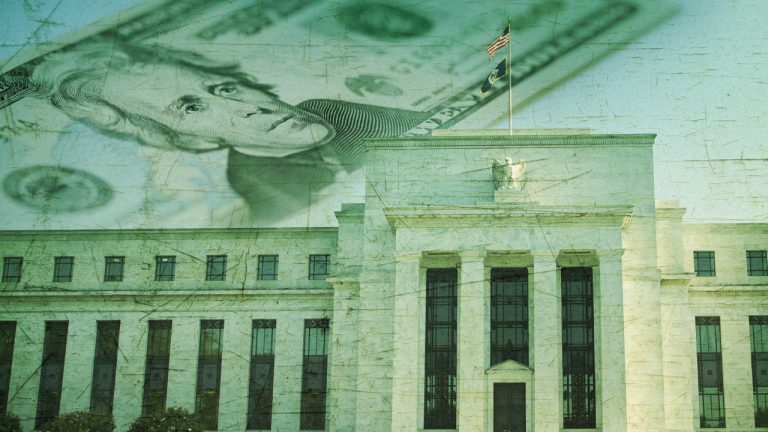
The digital assets subcommittee heard from five opponents of a U.S. CBDC without giving supporters equal (or any) time.
A chorus of disapproval rang out from the halls of the United States Congress on Sept. 14 as the House of Representatives Financial Services Committee digital assets subcommittee held a hearing on the “digital dollar dilemma.” Five expert witnesses were scheduled to testify at the hearing, and all of them argued against creating a U.S. central bank digital currency (CBDC), otherwise known as a digital dollar.
The five witnesses slated to speak at the hearing were Digital Asset CEO Yuval Rooz, senior vice president of the advocacy group Bank Policy Institute Paige Paridon, University of Pennsylvania Wharton School's Christina Parajon Skinner, Norbert Michel from the think-tank Cato Institute and Columbia University lecturer Raúl Carrillo.
The hearing is explicitly dedicated to private sector alternatives to CBDC, but only Rooz was directly affiliated with a business.
Digital Asset is the creator of the Daml smart contract language and the Canton blockchain, which is backed by companies such as Microsoft, Goldman Sachs and Deloitte. In his prepared testimony, Rooz urges that any form of digital dollar should leverage existing technologies in the private sector.
#TODAY @ 2 PM - Subcmte RM @RepStephenLynch leads Democrats as the Subcmte on Digital Assets, Financial Technology and Inclusion holds a hearing entitled “Digital Dollar Dilemma: The Implications of a Central Bank Digital Currency and Private Sector Alternative”
— U.S. House Committee on Financial Services (@FSCDems) September 14, 2023
:…
Paridon spoke about claims made by digital dollar supporters with counterarguments. She concentrated on issues that could arise within the banking system. Based on this list of potential risks, she concluded, “A CBDC could undermine the commercial banking system in the United States and severely constrict the availability of credit to the economy.”
Skinner set CBDC largely in a historical context, beginning with the apparent intentions of the Founding Fathers. She concluded:
“Introducing CBDC is likely to have certain costs to individual economic liberty by providing the State with more tools – and hence greater temptation – to establish command-and-control style public policy.”
The Cato Institute has a well-established record as an opponent of CBDC. Michel addressed technical and political issues and sees no good coming from a U.S. CBDC.
Related: House committee will reopen discussions on digital dollar in Sept. 14 hearing
Carrillo stated his support for a digital dollar and opposition specifically to a CBDC. A major objection put forward by Carrillo to CBDC is the concentration of responsibilities in the Federal Reserve since the Treasury Department has many roles in monetary creation and implementation of financial technology.
In his analysis, Carrillo stated, “There is a profoundly mistaken assumption that we do not already live in a financial surveillance state.” He continued:
“Although counterintuitive to some CBDC critics, substantively reigning in government financial surveillance means limiting public-private partnerships, as direct relationships between the government and members of the public are more likely to engender constitutional protections, including protection under the Fourth Amendment.”
Blockchain technology is not a decisive factor in ensuring privacy, Carrillo argued:
“Aspirationally, blockchain hides sensitive data about users, but in practice, blockchain systems necessarily interface with the surveilled infrastructure of the rest of the internet.”
Carrillo endorsed the Electronic Cash and Secured Hardware (ECASH) Act, which was not one of the bills being examined by the subcommittee but was, Carrillo said, being re-introduced on Sept. 14. Carrillo concluded that “DFC [digital fiat currency] discourse in the United States is comparatively impoverished and unimaginative. […] Policymakers should support an array of Digital Dollar pilot programs and develop a steady rhythm of innovation, aiming to build a safe and secure financial system for all.”
Among the questions that go unanswered in the presentations was that of who precisely the often-mentioned supporters of CBDC are. References were made to CBDC research being conducted by the Fed. Still, in light of the Fed’s well-known mantra of no CBDC without Congressional authorization, that seems like a paper tiger.
H.R. 3402, one of the bills under discussion at the hearing, seeks to make a Congressional mandate for the introduction of a CBDC a legal requirement. H.R. 3712, also under consideration, would largely ban CBDC research. Rep. Tom Emmer’s recently re-introduced "CBDC Anti-Surveillance State Act" was also on the hearing agenda.
Presumably, the Biden administration was seen as supportive, as the president’s March 2022 executive order on digital assets mandated CBDC research. The advocacy group Digital Dollar Project, co-founded by former U.S. Commodity Futures Trading Commission head Christopher Giancarlo, has also contributed significantly to CBDC research.
Magazine: China’s Digital Yuan Is an Economic Cyberweapon, and the US Is Disarming











